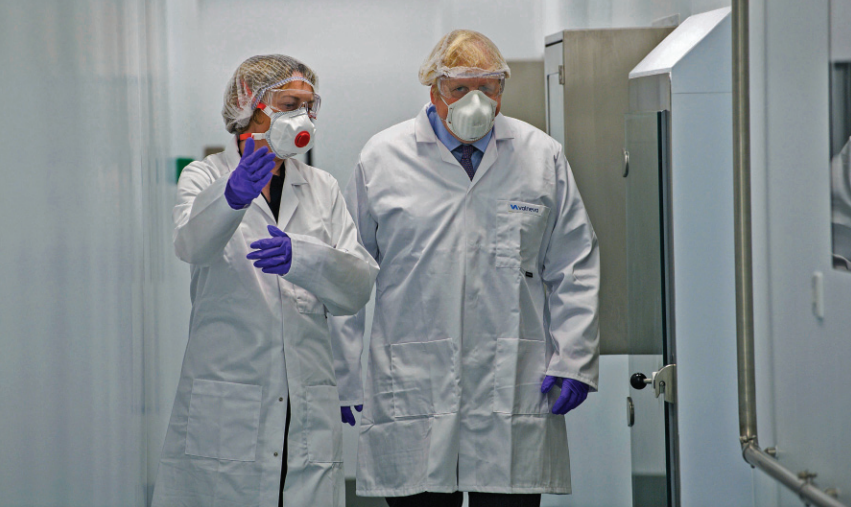UK increases vaccine orders to 400 million doses after new deal
By EARLE GALE in London | China Daily Global | Updated: 2021-02-02 09:14

The United Kingdom has signed a deal with the French company Valneva for 40 million doses of its candidate novel coronavirus vaccine, a move that increases the country's sizable stockpile of doses.
With the nation of around 67 million people now holding or expecting at least 400 million jabs, speculation has turned to when and how London might help other nations.
The Bloomberg news agency said the new order means the UK has now requested a total of 100 million jabs from Valneva, with many not due to be delivered until next year.
London also has an option to buy an additional 90 million doses if it wants, which would be delivery between 2023 and 2025.
Valneva said the order could end up costing the UK as much as 1.4 billion euros ($1.7 billion) if the UK takes up all the options it is entitled to because of earlier agreements.
Clive Dix, the chairman of the UK's vaccines task force, said the apparent extra doses will "give us future flexibility in the event that we would need to revaccinate part of the population".
Early clinical tests on the vaccine, which will be produced in Scotland, have been successful, but detailed results will not be published until April.
The fact that the UK has ordered large quantities of vaccines from several companies means stocks have been sufficient for it to get its vaccination drive off to a good start, with around 600,0000 people now being injected each day.
On Monday, the National Health Service said it had completed the process of offering an injection to everyone in England's 10,000 care homes for elderly residents.
Prime Minister Boris Johnson described the achievement as a "crucial milestone" in the nation's race to vaccinate, by mid-February, the 15 million people deemed to be most at risk of dying from COVID-19.
He said the vaccination program offers the nation a "route out of the pandemic".
So far, around 9 million people in the most vulnerable groups have received their first jab, with almost half a million of them also having also had their second jab to complete their vaccination.
Social Care Minister Helen Whately said on Radio 4's Today program on Monday: "Any care home that hasn't been contacted, just let me know and I will personally follow up."
Later, she said on the BBC's morning news program Breakfast that the fact that care home residents have been inoculated against the novel coronavirus does not mean they will be able to receive visits from friends and family. That moment, she said, will have to wait until a significant percentage of the population has also been vaccinated.
With the UK seemingly in possession of large stocks of novel coronavirus vaccines, the Daily Mail reported on Monday that London might send spare vaccines to neighbor Ireland following the European Union's climb-down on the weekend in a row over vaccine exports from the bloc to the island of Ireland.
The paper noted that Brussels had considered reinstating border checks along the dividing line between the Republic of Ireland and Northern Ireland to prevent vaccines being imported into the UK via the republic at a time when the EU has insufficient stockpiles.
The paper said that, with the controversial idea of border checks now quashed and the specter of the bloc instead limiting exports of the jab to the Republic of Ireland, London could respond by ensuring its neighbor has ample supplies by sharing some of its reserves.
It said Johnson is also likely to start sharing the UK's jabs with other nations starting in the summer, something Liz Truss, the secretary of state for international trade, seemed to confirm when she said on The Andrew Marr Show: "It won't benefit people in Britain if we become a vaccinated island and many other countries don't have the vaccine."
Meanwhile, the BBC reported on Monday that a variant of the novel coronavirus first identified in South Africa appears to be spreading in the UK.
The broadcaster said cases were identified among people with no links to South Africa during random checks carried out by Public Health England.
It said additional testing will be conducted to see the extent of the problem.
























